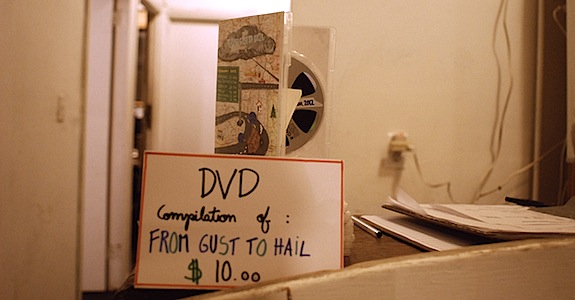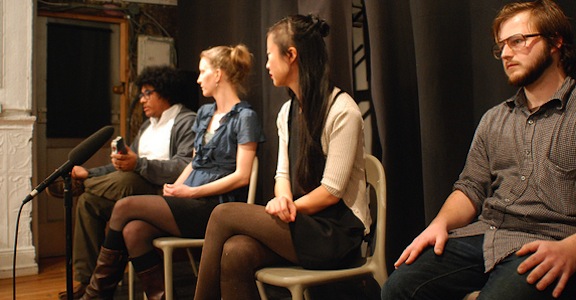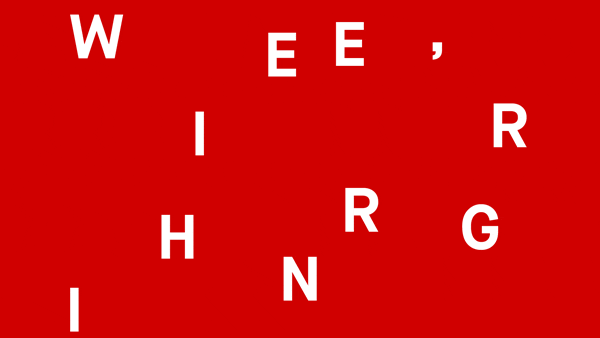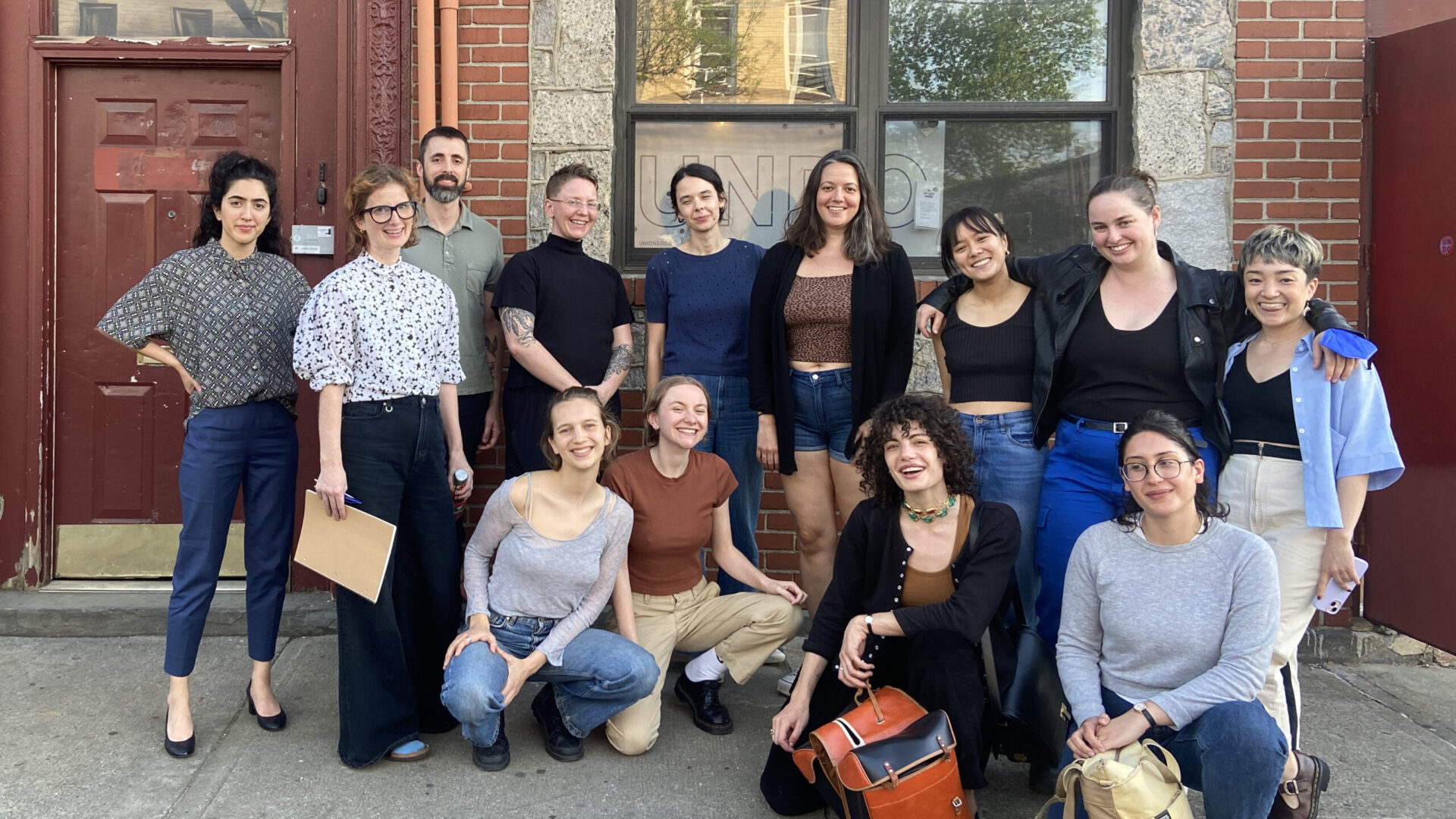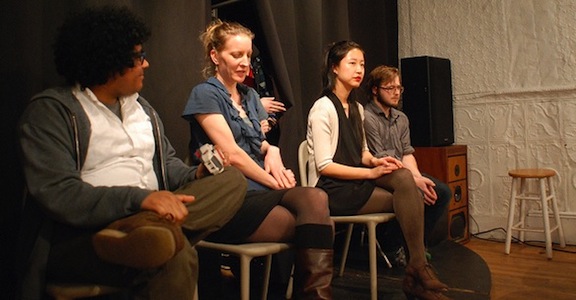
This is an edited transcript from a screeening held on February 24th at UnionDocs. Purchase
“That for me is like, wow, you can make poetry. That’s awesome.”
–Luis Arnías discussing his first encounter with making 16mm film.
Luis Arnías and Matt McWilliams are curators of the East Coast film tour “From Gust to Hail: New England Experimental.” Like a touring rock band, they have set across the coast from Boston to Baltimore, armed with their own projectors and over twelve works in their original 16mm and super 8 format. I love the nostalgic beauty of these formats as much as the next indie filmmaker, but as someone who has tried, and often failed, at working with 16mm, I was particularly interested in why Matt and Luis are so passionate about a fading art form that is so difficult to pull off. When I spoke with them before the show, they convinced me of the rewards of working with small gauge film (16mm and super 8). Matt constantly referred back to the aura of 16mm, and Luis alluded to its beauty as he described a cleaner/lighter film in the series as a cucumber sandwich. The term “Experimental” is fitting for this series, not only for the boundary pushing content of the films but also in the way in which they were shown. The atmosphere was playful, fun and exciting. I felt as if we were in Luis and Matt’s living room, enjoying some of their home brewed beer and cider that was for sale while setting up projectors and discussing experimental film. It was an intimacy that was reflected in the films we saw. In an era when the digital seems to be winning the battle, Matt and Luis are fighting to keep 16mm out there—inspiring those of us who might be afraid of analog to collaborate, share and try it together. I might just have to dust off that Bolex one more time.
Matt and Luis along with two filmmakers in the show, Lily Sheng and Kathleen Rugh, joined UnionDocs for a panel discussion of their work and the small gauge format.
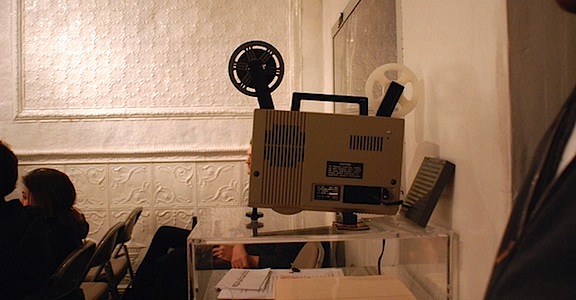
PANEL:
Steve: I am curious about the scene in New England, since this is a New England tour. Is there a lot of overlap in collaboration on these films and how would you say the culture is in terms of production and exhibition is in Boston or Cambridge?
Kathleen: I live here in Brooklyn now, but I went to graduate school in Boston and I still go up there regularly because I teach film production at Emerson. One thing that I’ve noticed in Boston is that there is a strong number of people doing experimental film and because it’s a little smaller it’s easier to feel a sense of community with the filmmakers and I think that’s partly why I got involved in this because I knew people from way back when and continued that relationship and correspondence.
Luis Arnías: What I enjoy in part is that film that we’re making there are young people doing it still, professors who taught us, mentors as well and now we’re out of school and still doing so.
Steve: Is there still a lot of film production taught at most of the universities in Boston?
Matt: Film production is still alive. A lot of the workshops are very informal. There are a lot of work in progress screenings that pop that are sort of localized around schools, Museum School is one I’ve experienced.
Audience Member: Buy I was wondering if you could talk more about the choice of 16mm beside the nostalgic aspect, instead of video?
Luis: About nostalgia, I was born in 82, born in Venezuela, my dad didn’t have Super 8, my mom didn’t have Super 8 so I had to learn how to do these things in school in Boston in 2006. That nostalgia is nonexistent to me, I had never seen that before. I just got kidnapped in a hallway in school and they put me in this dark room showing me these things. That for me is like wow you can make poetry that’s awesome. The idea made me sad and mad and its been around for so long and not many people know it…I have shown video before but I don’t feel the same relationship to it. Perhaps because its because it’s not as material to me, besides I’m really done with computers. That’s why I prefer film.
Matt: Similarly I began with both analog and digital photography, I think digital and analog processes have their own traumas…shooting something on digital is regarded more as immediately gratifying, but I find that immediate gratification kind of numbing and the result of shooting a film, or a photograph on film, is just that much more because of the time you wait for it, the time you lose in actually taking it and losing it.
Kathleen: I think that there’s also, for me, I think the different types of cameras you work with make you respond to your surroundings or whatever image you’re capturing differently. I found that when I shoot on film, I also edit a lot in analog, so actual taping and cutting, in that process I am a lot more thoughtful than when I work with video cameras. I think you just work with the imagery and the process differently.
Luis: We like film.
Audience Member: Do you think things being digitally available like on Vimeo do you see that as diminishing the value or the ability to see the film itself? Or do you see it as drawing more people in? Or unique objects that can only be viewed on film?
Luis: I particularly don’t mind, I want you to see it. I put my things online, I put them on Vimeo, I put them on YouTube and I show them here as well alright. I think when they’re closer to their original…right now I am speaking in English, but in my head it’s in Spanish translating. You’re losing like at least 50% of what I’m trying to say. This is what’s happening when I show my films, so you’re losing a lot, and I want you to know so, and I hope you to understand so.
Kathleen: I think having it online is nice so that people get a little sampling but…it’s not the best representation of my work. I think the projection is ultimately a much richer experience. Also when you watch things on a computer, when you sit in front of a computer, your attention span is much less than when you’re actually sitting in a room. A lot of this work takes patience, it’s not what we’re used to it’s not what we’re programmed to experience every day with TV and Hollywood. So being in an environment where you’re kind of forced to not be looking at your email or not be checking Facebook, just kind of trying to focus in I think it helps the experience of it.
Matt: I think there is a strong parallel of music.You can have a recording of it and listen to it and it’s a much more passive experience than going out and seeing live music. Film doesn’t really fit that analogy that well because it’s not live, but it is a different experience and it does have its own aura.
Audience member: how much is motrin What was the curatorial process in putting this program together?
Luis: First time ever going on tour. The curatorial process is more about people we knew in the New England area, and then we tried to assemble it in a cohesive way. Next year I think it’s gonna have an open call, receive films from more people and then that will be more about curatorial. This one is more like a sample from New England.
Matt: There are a lot of personal biases I think. These are people who we admire. We are doing this kind of self funded shot in the dark sort of tour that we don’t really have a model for. We chose people we enjoy and thought fit well together. As we’ve said before, professor, friends, films that we liked seeing and hoped other people would as well.
Audience member: Are you keeping that website, that web domain open for next round? Next year you’ll accept submissions on the same site? How do we come to know about submissions?
Matt: We are hoping to open up submission in the coming months.
Kathleen: Are you keeping the website alive?
Luis: Yes we are and we have Fickr, the usual suspects.
Luis Arnías (b. 1982) is a photographer, filmmaker and sculptor from Venezuela who currently lives and works in Boston, MA. In 2009, he completed the diploma program at the School of the Museum of Fine Arts, Boston. online
Matt McWilliams i http://blog.h4gchurch.com/?p=14498 s a New England native who works in film and electronics. Graduate of Emerson College ’09, he works and screens in microcinemas in Boston.
